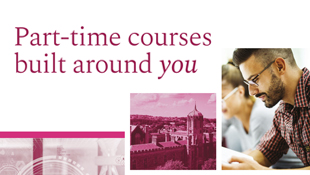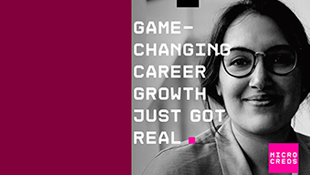-
Courses

Courses
Choosing a course is one of the most important decisions you'll ever make! View our courses and see what our students and lecturers have to say about the courses you are interested in at the links below.
-
University Life

University Life
Each year more than 4,000 choose University of Galway as their University of choice. Find out what life at University of Galway is all about here.
-
About University of Galway

About University of Galway
Since 1845, University of Galway has been sharing the highest quality teaching and research with Ireland and the world. Find out what makes our University so special – from our distinguished history to the latest news and campus developments.
-
Colleges & Schools

Colleges & Schools
University of Galway has earned international recognition as a research-led university with a commitment to top quality teaching across a range of key areas of expertise.
-
Research & Innovation

Research & Innovation
University of Galway’s vibrant research community take on some of the most pressing challenges of our times.
-
Business & Industry

Guiding Breakthrough Research at University of Galway
We explore and facilitate commercial opportunities for the research community at University of Galway, as well as facilitating industry partnership.
-
Alumni & Friends

Alumni & Friends
There are 128,000 University of Galway alumni worldwide. Stay connected to your alumni community! Join our social networks and update your details online.
-
Community Engagement

Community Engagement
At University of Galway, we believe that the best learning takes place when you apply what you learn in a real world context. That's why many of our courses include work placements or community projects.
Community, Youth & Family Studies (Degree)
Course Overview
This distance learning course is a four-year, part-time course in Community, Youth and Family Studies. Students are awarded a University of Galway Diploma in Arts (Community, Youth and Family Studies) upon successful completion of the first two years of the course and a Bachelor of Arts in Community, Youth and Family Studies on completion of the four-year cycle. This course is designed to enable participants to further develop and enhance their understanding, knowledge and skills relevant to Family, Youth and Community work practice and policy in Ireland or abroad. The main focus of the Degree course will be on Community, Youth and Family studies, but will broadly incorporate community development, family support, adolescence, childcare, health, political and general socio-economic studies.
Mode of Study: Blended Learning
The classes will be delivered via blended learning including a series of monthly workshops on Fridays and/or Saturdays throughout the academic year September to May. The specific timetable for the academic year 2024/25 will be issued to all applicants in due course.
Applications and Selections
Applications open from 1st April 2024.
Applications are made online via the University of Galway Applications System. This course is listed under Adult Learning Undergraduate\Postgraduate, CPD, Micro-credentials & Summer School Applications.
Please visit our How to Apply page for Application tips and Supporting Documents information.
Who Teaches this Course
Requirements and Assessment
The modular structure of the course allows students to proceed at their own pace. A series of one- to two-day workshops are scheduled throughout the academic year (September to May) which students must attend – this equates to approximately one workshop per month. Students must attend workshops and submit an assignment for each module. Students must also submit a project at the end of each year of study. A proportion of marks are also allocated to written examinations.
Formal academic qualifications are not required to commence the BA in Community, Youth and Family Studies. Students should have appropriate experience in Youth, Family, or Community work and must be in a position to undertake course assignments and projects relating to practical aspects of Community, Youth, and Family Studies.
Key Facts
Entry Requirements
Formal academic qualifications are not required for entry to the BA in Community, Youth and Family Studies. Participants should have good reading and writing skills, as well as basic IT skills, as independent home study is required.
Students should have appropriate experience in Youth, Family, or Community work and must be in a position to undertake course assignments and projects relating to practical aspects of Community, Youth, and Family Studies.
Entry requirements for part-time students can be found here (i.e. age, english language requirements etc.).
Additional Requirements
Recognition of Prior Learning (RPL)
Duration
4 years, part-time
Next start date
September 2024
A Level Grades ()
Average intake
30
QQI/FET FETAC Entry Routes
Closing Date
NFQ level
8
Mode of study
Blended Learning
ECTS weighting
180
Award
CAO
Course code
Course Outline
This course was developed in response to the continuing education needs of personnel working in community/voluntary and state sectors actively supporting Community, Youth and Family life in a rapidly changing society. It is an interdisciplinary programme drawing upon selected components of Sociology, Politics, Community Development, Family Studies and Law. It is a broad educational course which places specific emphasis on knowledge and skills for personnel working within a broad range of sectors which seek to support and enable families and communities to function effectively within society.
This course is designed specifically to create accessible, student centred learning opportunities within the Social Sciences. Core open learning materials, developed by University of Galway practitioners and experts in the field of Community, Youth and Family support, will be provided to students at the start of the programme. The cost of learning materials and the tuition is included in the course fee. Each course consists of a combination of learning materials, workshops and assignments.
A University of Galway Diploma in Arts (Community, Youth and Family Studies) is awarded on attaining 90 credits and a Bachelor of Arts in Community, Youth and Family Studies degree on attaining 180 credits.
The BA course is devised on a modular, credit basis. Each module carries a specific number of credits. The maximum number of credits that a student can attain each year is 45 credits.
Year 1 Modules
- SP1105 Introduction to Learning (5 ECTS)
This module concentrates on improving the abilities of undergraduate students to develop their academic, transferable, generic and employment-related skills, and on preparing them to plan, prepare, edit and present written and oral work. The module will challenge students to develop the following skills: academic writing, research techniques, critical thinking and oral presentation. - SP127 Understanding Communities (10 ECTS)
This module seeks to provide an understanding of the main themes and initiatives that characterise community development. The key principles of community development theory and their application to various types of community setting are explored. It also aims to provide participants with the practical skills and training necessary to enable them to work effectively with communities. - SP147 Youth & Society (5 ECTS)
This module focuses on the life-stage of young person’s popularly and universally referred to as youth. Youth are duly recognized as a group who hold potential for great prospects in their personal and public lives. This life-stage development differs for all youth. Race, class, religion, gender and disability are dominant factors impacting on their life chances, educational experiences, vocational choices and potential. The critical debates around the reciprocity of youth and society are, therefore, located within the constitution of the family and the contexts of community and society. - SP1123 Group Work and Community Leadership (10 ECTS)
This module examines the theory and practice of group work and community leadership. It considers group dynamics, communication in groups, effective group processes, conflict management and practical facilitation skills. It also outlines theories on leadership and how community leadership can be developed and supported. - SP1113 Social Research Skills (5 ECTS)
This module comprises of an introductory under-graduate course on the theory and practice of social research. Research is essentially about collecting information in a methodical way in order to answer a question or test out a theory. The module focuses on how social research can play a vital role in community, youth and family work. - SP124 Introduction to Sociology (5 ECTS)
This module introduces students to a wide-ranging and thought – provoking discipline. Sociology is the study of human social life, groups and societies. A key sociological idea is that the lives of individuals cannot be understood apart from the social contexts in which they live. - SP1110 Introduction to Family and Society (5 ECTS)
This module is concerned with the nature of family and its interrelationship with wider society. It looks at how family is defined, the diversity of family forms and the role of family in society. A particular emphasis is placed on the nature of family change in Ireland and the western world. Throughout the module, you will see that family does not exist in isolation from wider systems, culture and ideologies and that these influences continually shape and re-configure people’s experiences and understanding of family and family life.
Further Education
Graduates of this degree will be eligible to apply for a range of postgraduate courses on offer at University of Galway. These include, for example, the MA in Social Work, MA in Family Support Studies and MA in Gender, Globalisation and Rights. There is also a new MA course being launched in 2021, the MA in Child, Youth and Community. This innovative one year full-time/two-year part-time blended learning MA is directly relevant to BA graduates and will enable students to be proficient in programme planning, implementation, monitoring and evaluation methodologies in the context of child, youth and community services.
Why Choose This Course?
Career Opportunities
There are many career opportunities open to graduates of the B.A. in Community, Youth and Family Studies degree as it offers a solid foundation and understanding of the social science discipline. Some graduates have progressed onto postgraduate study in Social Work and Life Course (Family Support) studies while other graduates of the B.A. course have gained employment as community development and family support workers.
Who’s Suited to This Course
Learning Outcomes
Transferable Skills Employers Value
Work Placement
Study Abroad
Related Student Organisations
Course Fees
Fees: EU
Fees: Tuition
Fees: Student levy
Fees: Non EU
Fees for this course are collected directly by the Centre, please see our staff listing
A fee scholarship of up to 30% may be available for students who wish to upskill for the purposes of re-employment. Must be registered as unemployed and in receipt of one of the following:
- Job-seekers Benefit
- Job-seekers Allowance
- One-parent family allowance
- Disability Allowance
- Community Employment Scheme
- Carer’s Allowance
- Signing for social insurance contribution credits
For more information download the 2024_25 Fees Scholarship Form
Find out More
What Our Students Say

Marie Simpson | Graduate
I enrolled on this course after a career break to look after my family. Although I had never studied at third level before, I looked forward to where my academic journey would take me with an open and inquisitive mind. From the start, the Course Directors understood adult learners' needs and commitments and were very supportive. My peers, of varying age, were from diverse backgrounds. We had all experienced very different life experiences which made for lively and informative classroom debate. Although I enjoyed all aspects of the course, I found the youth and family modules most interesting. In the second year of the course, I started work in a family support role where I was able to transfer my theoretical knowledge into workplace skills grounded in best practice. The degree also taught me how to analyse information and put forward a robust academic argument. So for me, the course’s real highlight was the opportunity to learn research skills, taught in gradual steps over the four years. As students, we were encouraged to research our own choice of subjects in keeping with community, youth and family studies which culminated in a final year thesis.

Orla Campion | Graduate
When I started this course I was volunteering in a youth club in Dublin and working in a corporate environment. My youth club experience was fun and rewarding and it made me rethink my attitudes and beliefs. This was a time in my life where I wanted to motivate myself and learn. I was attracted by NUI Galway's adult learning courses for my personal development. With this course I was able to separate the four years into attaining a diploma and a degree which made the whole course less overwhelming. Each of the modules reflect the areas of community, youth and family. My goal was to learn about youth and youth work; however, the modules complement each other and guide you through different issues. Each year the modules build on the previous year's knowledge and each step of the process is well thought-out and managed. I found that I enjoyed the challenge of the academic writing process and I gained research skills and the confidence to explore a topic academically and to use these skills to speak out. This has proven invaluable and I use my newfound understanding of best practice principles and practical skills learned in my volunteering and professional environment.

Dave Browne | Graduate
I am a Community Resource Worker at Chime, supporting people who are deaf and hard of hearing. I finished my secondary level education with a very modest Leaving Certificate and this left me feeling that third level education was not for me, it would be better if I joined the workforce in any capacity. However 27 years later I have now completed the 4th year BA course in Community, Youth and Family studies. The tutors over the past few years quenched any of my worries and doubts about re-entering education. The support and encouragement I received from the Adult Education team never wavered throughout the BA course. Being able to reflect and share on my personal and work experiences throughout each module was encouraged which aided my understanding of each module and in completing each assignment. I’m sure I’ve made lifelong friends in my classmates and my confidence, both personally and professionally has grown. My return to education has been so worthwhile and the feeling of achievement outweighs the fears and doubts I had four years ago. I would encourage anyone thinking of undertaking this course to go for it, you will not regret a single moment of it, I haven’t.


















